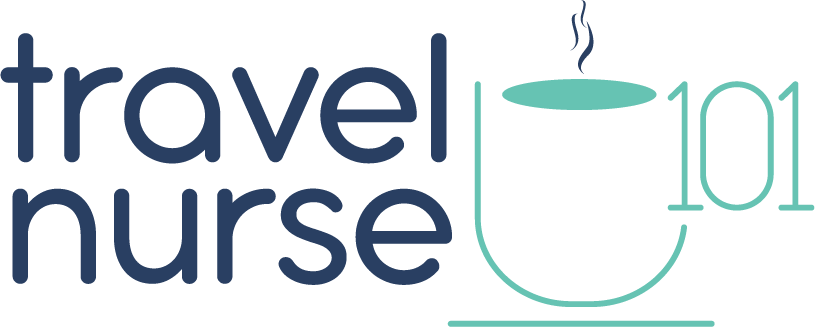If you’ve been hearing chatter about healthcare policy changes, Medicaid cuts, or hospital shifts and wondering what it means for you as a travel nurse—you’re not alone. I’ve been keeping a close eye on what’s happening, and today, I want to break it down with a little less fear and a lot more perspective.
Because while yes, there are big changes happening, there are also big opportunities on the horizon. Let’s dig into what’s shifting and how you can keep thriving through it all.
More Uninsured Patients Means Greater Impact for Nurses
With millions losing access to Medicaid and ACA coverage, more people are relying on emergency rooms when their health issues become critical. This means higher patient volumes and increased acuity—especially in ER, ICU, and med-surg units.
What it means for travel nurses:
- Increased demand for experienced critical care nurses
- More crisis contracts popping up in underserved areas
- A real opportunity to step in where you’re most needed
This is where your expertise makes a life-saving difference.
Medicaid Cuts = New Career Paths for Resourceful Nurses
Policy changes are affecting vulnerable populations most—elderly patients, those with chronic conditions, and folks who rely on safety-net hospitals.
What it means for travel nurses:
- Higher demand for case managers and psych nurses
- New roles opening in community health and outpatient triage
- Opportunities to expand your skillset in complex care and patient advocacy
If you’re ready to level up, this could be your season.
Rural Hospitals Are Shifting—And So Can You
Rural hospitals face potential closures due to reduced Medicaid support. But this doesn’t mean care in these communities ends. Instead, they’re getting creative with temporary staffing, telehealth, and flexible coverage models.
For travel nurses:
- Crisis staffing roles will still be available (and usually pay well)
- Demand is shifting toward larger systems in metro areas
- Float pool and rapid-response travel nurses will be in high demand
Stay nimble, and you’ll find strong opportunities wherever care is most needed.
Reproductive Health Shifts = Higher Need for Compassionate Care
With fewer resources for family planning and reproductive health, we may see more patients presenting later in pregnancy or with fewer support systems.
Impacts for travel nurses:
- OB, L&D, and women’s health roles will be essential
- Mental health travel roles may grow in tandem
- Nurse educators and patient advocates will have a greater platform
This is a time to lead with empathy and show up with heart.
Social Support is Thinning, But Nurses Can Bridge the Gap
Cuts to programs like SNAP, housing assistance, and Medicaid leave many patients struggling with social determinants of health. This affects outcomes—and impacts the care we provide.
Why it matters for travel nurses:
- Greater demand for resource-savvy discharge planning
- More emotional and social support needed at the bedside
- Travel nurses in community-based roles will be game changers
Being a nurse isn’t just about clinical care—it’s about seeing the whole human in front of you.
Telehealth is Expanding
Some telehealth flexibilities are here to stay—which is amazing news for nurses who want more freedom, flexibility, or non-bedside options.
What it means for travel nurses:
- New job roles in virtual triage, education, and chronic care management
- The ability to work from home between contracts
- More diverse income streams and less burnout
You don’t have to leave nursing to find balance. You just need the right fit.
Navigating the Downsides
While travel nursing offers flexibility and opportunity, it’s important to acknowledge the real challenges many are facing in today’s healthcare landscape. Job insecurity can arise as contracts become more competitive and hospital budgets tighten, sometimes leading to last-minute cancellations or shorter assignments. Burnout remains a significant risk, especially as patient acuity rises and support resources thin out—leaving nurses stretched thin across units.
Wage stagnation is another concern, with pay rates in some regions flattening despite increased workloads and cost of living.
To help manage these pressures, scheduling a mentor session with me can provide you with personalized guidance, emotional support, and practical strategies for maintaining resilience and job satisfaction. Additionally, keeping in close communication with your recruiter ensures you’re among the first to know about new assignments, contract changes, or pay adjustments—helping you stay proactive rather than reactive in your career. These connections not only offer reassurance during uncertain times but also empower you to make informed decisions and advocate for your own well-being.
Image: https://www.gettyimages.com/detail/photo/woman-relaxes-at-the-back-of-her-van-overlooking-royalty-free-image/1287257189?phrase=adapting%20travel&searchscope=image%2Cfilm&adppopup=true
Final Thoughts
Change can feel overwhelming—but it can also be a springboard for growth. As travel nurses, we’re uniquely positioned to fill gaps, lead change, and bring compassionate care wherever it’s needed most.
So here’s what I want you to remember: Stay informed, stay open, and stay connected to a community that gets it. Whether you’re navigating a tough assignment or looking for your next opportunity, I’m here cheering you on and helping you make smart, empowered moves.
You’ve got this—and I’ve got you. Happy Travels!


